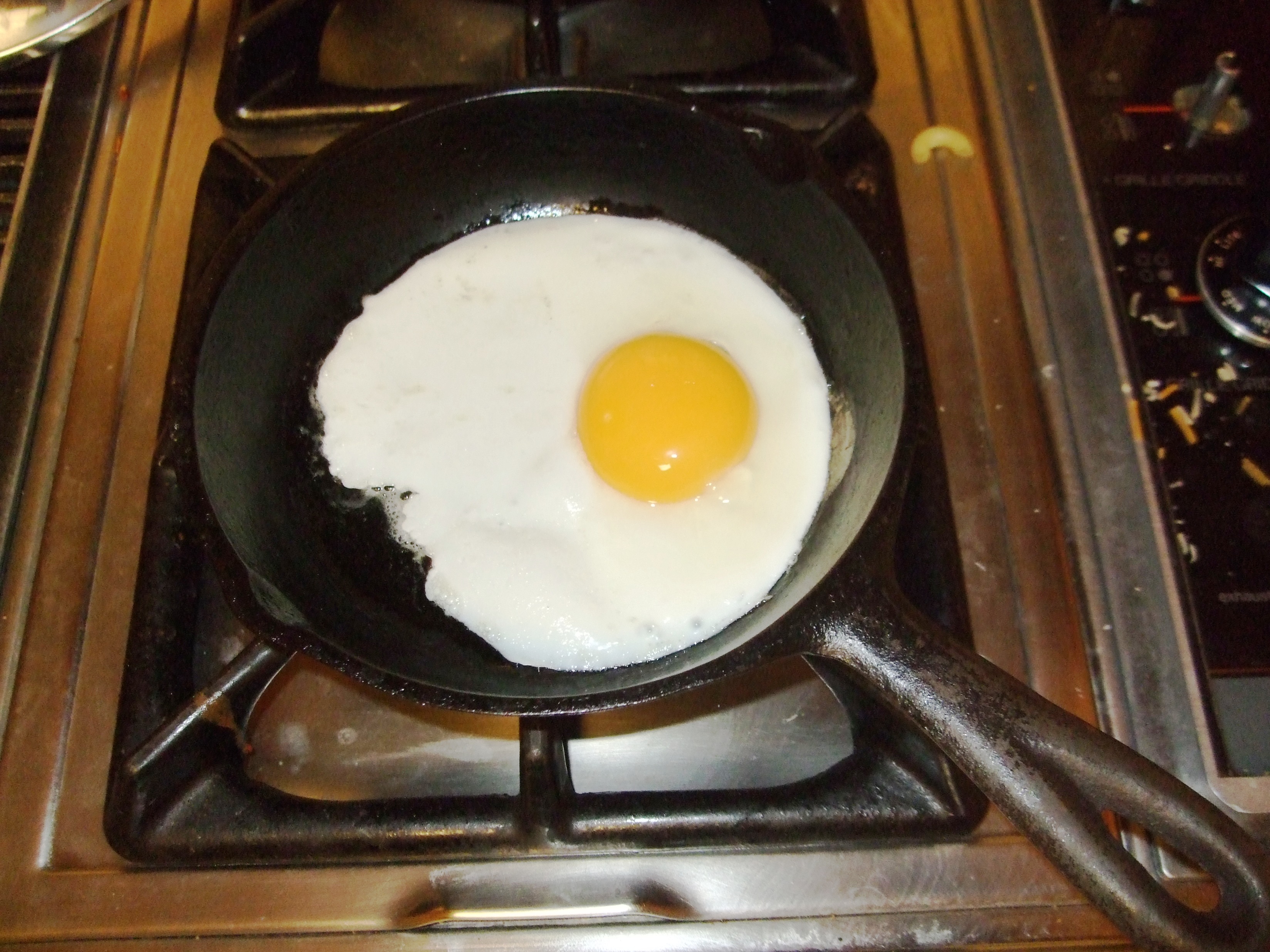The Rate of Reaction and Its Role
Science is always in every part of our life, whether we realize it or not. Anything that we do is always involved some parts of science in it. In chemistry, we have learned about rate of reaction and its role in our everyday life. Rate of reaction is important and has a crucial effect in our life.
Rate of reaction is, as defined by chemists,
the rate of reaction as the amount of a particular reactant consumed in mol/L per second”[1].
Obviously, there are some factors that affect the rate of reaction, which are:
- Temperature
- Concentration
- Catalyst
- Surface Area
- Nature of Substance
Temperature and Concentration

- Increasing temperature helps egg to evenly cooked
 In order to control the rate of reaction, we can manipulate those variables into the state that we need. For example, if we want to cook an egg faster, we can increase the temperature, as more heat involved, the faster the egg will cooked. Also, 2 tablets of antacid will neutralize the same amount of acid faster that just one tablet, because we increase the amount of reactant (concentration).
In order to control the rate of reaction, we can manipulate those variables into the state that we need. For example, if we want to cook an egg faster, we can increase the temperature, as more heat involved, the faster the egg will cooked. Also, 2 tablets of antacid will neutralize the same amount of acid faster that just one tablet, because we increase the amount of reactant (concentration).
Catalyst
Catalyst, what is it? Catalyst is a chemical substance which provides an additional reaction mechanism for a reaction. So, beside we increase or decrease the reactant, we could add an ‘extra’ substance to enhance or delay the rate of
reaction. For example, in human body, we produce a special enzyme, which helps to starch hydrolyze glucose on digesting process.
Surface Area
Do you know that aiming a big tank with cannon is easier than a soldier’s head? In the rate of reaction is the same, if we have a bigger surface area for reactants the particles inside it are more likely to collide more intense with other reactant, and therefore forming a new substance (particle theory). For example, 5 kg of ice cube in hot water with surface area of 100m2 will melt faster than the one that has 50m2 surface area.
Why do we need to control it?
So, why do we control the rate of reaction? The answer is simple, because we want it that way for our necessity, in wildlife a wood could decompose in over 300 years if it exposed to open air, but we want the process faster to get heat out of it, so we light the wood, we adding extra energy to fasten the process.
The rusting process of an iron is pretty much fast, not to mention if it’s in rough climate, but we don’t want the process occur, or at least we want to delay the process, so we paint it, or cover it with a substance that slows down the process.
Finally, the ability of rate of reaction is important and has a big role in our everyday life, so we have to control it, in order to satisfy our necessity.
Bibliography
Frostburg, A. (n.d.). Everyday Kinetics. Retrieved November 2009, from Antoine Frostburg: http://antoine.frostburg.edu/chem/senese/101/kinetics/faq/everyday-kinetics.shtml
Think Quest. (n.d.). The rate of reaction. Retrieved November 2009, from Think Quest Library: http://library.thinkquest.org/c004970/reaction/rates.htm
Wikipedia Encyclopedia. (2009, November 20). Reaction Rate. Retrieved November 2009, from Wikipedia The Free Encyclopedia: http://en.wikipedia.org/wiki/Rate_of_reaction
Yahoo Answer. (2009, October 6). Catalyst Effect In Rate of Reaction. Retrieved November 2009, from Yahoo Answer: http://answers.yahoo.com/question/index?qid=20091006203564AAdoRb4
[1] http://library.thinkquest.org/c004970/reaction/rates.htm






i really liked this articel... it helped me with a chemistry project.... :)
ReplyDeletenice article, helped me a lot!
ReplyDeleteThanks! good luck on your project.
ReplyDeleteI don't think about these things much in terms of science but you're absolutely right. I'm going to try experimenting with my omelets to see if there is a way to speed up the rate of reaction.
ReplyDeletecool
ReplyDeletethis article gave me loads of infomation and answered alot of questions i had so... THANKS
ReplyDeletei liked the article it actually helped me wit my chem coursework, thanks a lot!!
ReplyDeleteNice my project is alive again!!
ReplyDeletemrp
ReplyDeleteReally helping me my year 10 science assignment
ReplyDeletesamesies
Deletegrammar could be improved
ReplyDeletewho is the author of this?
ReplyDeletePosted by Hz_B Bezt at 2:17 PM
ReplyDeletethis helped me soooooo much :D thank you
ReplyDeleteyo guys it 2018 now
ReplyDeletebtw follow me on insta @heyits_mash
Deletebut nah this rlly helped thanks
Deletethank
ReplyDelete